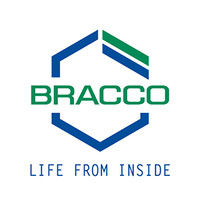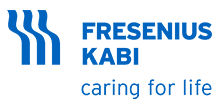预约演示
更新于:2025-05-07
Vascular occlusive disease
血管闭塞性疾病
更新于:2025-05-07
基本信息
别名 Occlusive vascular disease、VASCULAR DISEASE OCCLUSIVE、disease (or disorder); vascular, occlusive + [4] |
简介- |
关联
3
项与 血管闭塞性疾病 相关的药物靶点- |
作用机制- |
原研机构 |
最高研发阶段批准上市 |
首次获批国家/地区 中国 |
首次获批日期2003-02-13 |
靶点 |
作用机制 AT III激活剂 |
最高研发阶段批准上市 |
首次获批国家/地区 美国 |
首次获批日期1944-05-19 |
作用机制 5-HT2A receptor反向激动剂 |
在研适应症 |
最高研发阶段临床1期 |
首次获批国家/地区- |
首次获批日期1800-01-20 |
80
项与 血管闭塞性疾病 相关的临床试验NCT06909578
Microvascular Obstruction Diagnosis Using the CoFI™ System Assessment - II
A prospective, multicenter, international single-arm, pivotal clinical study designed to validate the performance of the CoFI system in detecting MVO in STEMI subjects, as confirmed by CMRI. The study will be conducted in accordance with the Declaration of Helsinki, EN ISO 14155:2020, local and national regulations.
Each study site will receive support from a sponsor-certified proctor during the learning curve to ensure consistent and accurate application of the CoFI system.
Each study site will receive support from a sponsor-certified proctor during the learning curve to ensure consistent and accurate application of the CoFI system.
开始日期2025-05-01 |
申办/合作机构 |
NCT06923111
A Comparative Observational Study to Evaluate the Safety and Effectiveness of Xromi (Hydroxycarbamide Oral Solution 100mg/ml) for the Prevention of Vaso-occlusive Complications of Sickle Cell Disease in Children Under 2 Years of Age.
This post-authorisation safety and efficacy study (PRECISE PASS) evaluates the use of Xromi® (hydroxycarbamide 100 mg/mL oral solution) in children aged 9 months to under 2 years with sickle cell disease (SCD).
The objective is to assess the safety profile and clinical effectiveness of Xromi® under routine clinical conditions. The study includes a prospective cohort of Xromi®-treated patients and a matched retrospective comparator cohort of untreated patients. Participants will be followed for 24 months from treatment initiation or matched index date.
The objective is to assess the safety profile and clinical effectiveness of Xromi® under routine clinical conditions. The study includes a prospective cohort of Xromi®-treated patients and a matched retrospective comparator cohort of untreated patients. Participants will be followed for 24 months from treatment initiation or matched index date.
开始日期2025-04-01 |
申办/合作机构 |
NCT06755801
Microvascular Obstruction Treatment and Outcomes Randomized Study.
To determine the effectiveness of the beta-blocker nebivolol in controlling symptoms and improving the quality of life in patients with angina and coronary microvascular dysfunction.
开始日期2025-04-01 |
申办/合作机构- |
100 项与 血管闭塞性疾病 相关的临床结果
登录后查看更多信息
100 项与 血管闭塞性疾病 相关的转化医学
登录后查看更多信息
0 项与 血管闭塞性疾病 相关的专利(医药)
登录后查看更多信息
6,325
项与 血管闭塞性疾病 相关的文献(医药)2025-12-01·Current Atherosclerosis Reports
Impact of Selective Peroxisome Proliferator-Activated Receptor (PPAR)-α Modulators and Fibrates on Microvascular Disease: Is There Still Room?
Review
作者: Ribeiro, Matheus Laterza ; Godoy, Lucas Colombo ; Iatan, Iulia ; Marinho, Lucas Lage ; Maranhão, Raul Cavalcante ; Lawler, Patrick R ; Rached, Fabiana Hanna
2025-12-01·Blood Research
Efficacy and safety of thalidomide with hydroxyurea in sickle cell anemia: a quasi-experimental clinical trial
Article
作者: Bahirat, Harshwardhan ; Paul, Anindita ; Epari, Venkatarao ; Samal, Priyanka ; Bishoyi, Ajit Kumar
2025-07-01·International Journal of Cardiology
The use of supersaturated oxygen therapy in patients with late-presentation anterior ST-segment elevation myocardial infarction
Article
作者: Bergstedt, Seth ; Feldewerd, Katianna ; Carlson, Paige E ; Campbell, Michelle ; Cavalcante, Joao L ; Schmidt, Stephanie ; Traverse, Jay H ; Schwager, Sarah
85
项与 血管闭塞性疾病 相关的新闻(医药)2024-12-10
·药明康德
▎药明康德内容团队编辑
细胞和基因疗法(CGT)已经在治疗多种血液癌症和罕见遗传病领域展现出惊人的疗效。这一治疗模式有望通过一次治疗,给患者带来治愈的希望。然而,CGT疗法的治愈性潜力仍然需要试验数据的验证,而且与传统小分子和生物制品疗法相比,CGT疗法制造流程复杂,如何改良制造工艺,提高疗法可及性也是业界关注的挑战之一。在正在举行的美国血液学会(ASH)年会上。多家公司公布了展现CGT疗法治愈性潜力的数据,并且提出了改良CAR-T细胞疗法制造工艺的新策略。今天这篇文章中,药明康德内容团队将与读者分享这些最新进展。
图片来源:123RF
疗效持续长达近5年,首款获批CRISPR基因编辑疗法展现治愈潜力
Vertex Pharmaceuticals公司在ASH年会上公布了与CRISPR Therapeutics联合开发的CRISPR基因编辑疗法Casgevy的长期随访数据。试验结果显示了Casgevy的持久疗效。Casgevy是一款自体细胞疗法,它利用CRISPR/Cas9基因编辑系统,在体外对来自患者的造血干细胞进行编辑,使血红细胞生产高水平的胎儿血红蛋白。
在治疗镰刀型细胞贫血病(SCD)患者的临床试验中,93%(39/42)的可评估患者至少连续12个月没有出现血管闭塞危象(VOCs),中位无VOC时间为30.9个月,最长达到59.6个月。
在输血依赖性β地中海贫血(TDT)患者中,98%(53/54)可评估患者达到至少12个月不需要输血。中位无需输血持续时间为34.5个月,最长达到64.1个月。
约90%患者疗效维持超过42个月,基因疗法长期临床试验数据发布
bluebird bio公司在ASH年会上公布了其基因疗法Lyfgenia治疗镰刀型细胞贫血病患者的长期随访数据。Lyfgenia是一款治疗SCD的一次性基因疗法,将表达改良形式的β-珠蛋白的转基因添加到患者自身的造血干细胞中,让他们的红细胞可以产生能够抵抗血红细胞镰刀化的血红蛋白,从减少镰状红细胞、溶血和其他并发症。它在2023年获FDA批准,治疗12岁及以上患有镰刀型细胞贫血病且有血管闭塞事件(VOE)史的患者。
长期随访数据显示:截至2024年7月,所有患者稳定表达改良形式的β-珠蛋白,在无需输血的情况下总血红蛋白水平为12.4 g/dL。
94.7%(36/38)的可评估患者在接受治疗后6-18个月期间达到严重VOE完全消失的目标,中位维持时间为42.3个月。
86.8%(33/38)的可评估患者达到所有VOE完全消失的目标,中位维持时间为42.4个月。
100%(10/10)的儿科患者达到所有VOE完全消失的目标。
此外,bluebird bio公司公布了一项在有中风病史的SCD患者中的研究结果。研究结果显示,在6名有中风病史的SCD患者中,接受Lyfgenia治疗后没有任何患者再度出现中风,最长随访时间达到9年,中位随访时间为6.5年。
7天完成自体CAR-T细胞制造和回输,CAR-T疗法完全缓解率可达100%
Galapagos公司在ASH年会上报告了在研CAR-T疗法GLPG5101的1/2期临床试验ATALANTA-1的最新结果。GLPG5101是一款靶向CD19的CAR-T细胞疗法,采用该公司创新的去中心化细胞疗法制造平台生产。
通常自体CAR-T疗法的制造流程需要从患者体内分离T细胞,然后运送到中心制造基地进行改造和检测,再冷冻运送到患者接受治疗的医院,解冻回输到患者体内。整个过程耗时较长,不但可能导致患者因为疾病进展而失去接受治疗的机会,冷冻和解冻过程也可能影响细胞疗法的活性。
Galapagos的去中心化制造平台直接在患者接受治疗的医院进行CAR-T细胞疗法的制造,无需冷冻保存,有潜力给患者输注具有干细胞特性的新鲜早期记忆T细胞,从分离患者T细胞到将CAR-T细胞回输到患者体内的中位时间只需7天。
初步试验数据显示,96%(47/49)的患者获得了这种创新制造工艺制造的CAR-T疗法的治疗,91.5%(43/47)的患者在7天内接受治疗,CAR-T细胞无需冷冻保存,患者也无需接受桥接治疗(bridging therapy,在CAR-T疗法制造期间控制疾病进展的疗法)。
在套细胞淋巴瘤(MCL)患者中,100%(8/8)的患者达到完全缓解。在边缘区淋巴瘤(MZL)和滤泡性淋巴瘤(FL)患者中,95%(20/21)患者获得完全缓解。
在弥漫性大B细胞淋巴瘤(DLBCL)患者中,客观缓解率为69%(9/13),完全缓解率为54%(7/13)。在接受高剂量GLPG5101治疗的7名患者中,客观缓解率为86%,完全缓解率为71%。
无需冷冻,CD19/CD20靶向CAR-T疗法关键性2期临床结果发布
Miltenyi Biomedicine公司在ASH年会上发布了在研CAR-T细胞疗法zamtocabtagene autoleucel(zamto-cel)的关键性2期临床试验的中期分析结果。这款细胞疗法同时靶向CD19和CD20抗原,有望解决肿瘤细胞通过丢失CD19或CD20抗原对靶向单一靶点的CAR-T细胞产生耐药性的问题。此外,这款细胞疗法的制造流程中也不需要冷冻保存CAR-T细胞,患者在细胞制造期间就开始清除自身淋巴细胞的预治疗,在14天内完成从获得患者的自体T细胞到将CAR-T疗法回输到患者体内的整个过程。
中期试验结果显示,在接受过至少两种前期治疗的复发/难治性DLBCL患者中,91.3%的患者成功接受未经过冷冻保存的新鲜CAR-T细胞疗法的治疗。在59名可评估患者中,客观缓解率达到72.9%,完全缓解率达到49.2%。6个月和12个月的无进展生存率分别为55%和42%。
CGT疗法作为新兴的治疗模式,正在为更多患者带来一次治疗,长久治愈的可能。ASH年会上报告的最新结果,不但展现了这类疗法的治愈性潜力,也显示了业界在改善疗法制造工艺,更快速将疗法递交给患者的努力。
期待细胞与基因疗法终将逾越现有的障碍,发挥全部的潜能,让一次治疗、长久有效、潜在治愈的未来,真正来到每一位患者的身边。
相关阅读:奇迹or契机?细胞与基因疗法的破局之道
▲欲了解更多前沿技术在生物医药产业中的应用,请长按扫描上方二维码,即可访问“药明直播间”,观看相关话题的直播讨论与精彩回放
参考资料:
[1] Beam Therapeutics Announces New Data from BEACON Phase 1/2 Clinical Trial of BEAM-101 in Sickle Cell Disease at American Society of Hematology (ASH) Annual Meeting. Retrieved December 9, 2024, from https://investors.beamtx.com/news-releases/news-release-details/beam-therapeutics-announces-new-data-beacon-phase-12-clinical
[2] Vertex Presents Positive Long-Term Data On CASGEVY™ (exagamglogene autotemcel) at the American Society of Hematology (ASH) Annual Meeting and Exposition and Provides Program Update. Retrieved December 9, 2024, from https://www.businesswire.com/news/home/20241206536804/en
[3] bluebird bio Presents Positive Long-Term Data On LYFGENIA™ (lovotobegligene autotemcel) Gene Therapy for Sickle Cell Disease at 66th American Society of Hematology (ASH) Annual Meeting and Exposition. Retrieved December 9, 2024, from https://www.businesswire.com/news/home/20241208134842/en
[4] Kite Presents New Data Underscoring Curative Potential of Yescarta® in Relapsed/Refractory Large B-cell Lymphoma at ASH. Retrieved December 9, 2024, from https://www.businesswire.com/news/home/20241208798555/en
[5] Galapagos Announces Encouraging New Results from Ongoing Phase 1/2 Study of CD19 CAR T-Cell Therapy, GLPG5101, in Patients with Relapsed/Refractory Non-Hodgkin Lymphoma. Retrieved December 9, 2024, from https://www.globenewswire.com/news-release/2024/12/07/2993348/0/en/Galapagos-Announces-Encouraging-New-Results-from-Ongoing-Phase-1-2-Study-of-CD19-CAR-T-Cell-Therapy-GLPG5101-in-Patients-with-Relapsed-Refractory-Non-Hodgkin-Lymphoma.html
[6] Tandem CD20-CD19-Directed CAR-T Cell Zamtocabtagene Autoleucel Therapy for R/R Diffuse Large B-Cell Lymphoma. Retrieved December 9, 2024, from https://www.hmpgloballearningnetwork.com/site/onc/conference-coverage/tandem-cd20-cd19-directed-car-t-cell-zamtocabtagene-autoleucel-therapy
[7] ASH 2024 – Miltenyi throws its hat into the fast-Car ring. Retrieved December 9, 2024, from https://www.oncologypipeline.com/apexonco/ash-2024-miltenyi-throws-its-hat-fast-car-ring
[8] ASH 2024 – Galapagos turns Car-T manufacturing on its head. Retrieved December 9, 2024, from https://www.oncologypipeline.com/apexonco/ash-2024-galapagos-turns-car-t-manufacturing-its-head
免责声明:药明康德内容团队专注介绍全球生物医药健康研究进展。本文仅作信息交流之目的,文中观点不代表药明康德立场,亦不代表药明康德支持或反对文中观点。本文也不是治疗方案推荐。如需获得治疗方案指导,请前往正规医院就诊。
版权说明:本文来自药明康德内容团队,欢迎个人转发至朋友圈,谢绝媒体或机构未经授权以任何形式转载至其他平台。转载授权请在「药明康德」微信公众号回复“转载”,获取转载须知。
分享,点赞,在看,聚焦全球生物医药健康创新
基因疗法细胞疗法临床研究免疫疗法
2024-11-18
2023年12月,美国食品和药物监督管理局 (FDA) ,批准Casgevy上市,这是由FDA批准的首款基于CRISPR技术的开创性体外基因编辑疗法,用于治疗12岁及以上伴有复发性血管闭塞危象的镰状细胞病 (SCD) 患者。
Casgevy涉及提取患者的CD34+造血干细胞和祖细胞并运用电穿孔的方法进行体外基因编辑,最后将已经进行基因编辑的CD34+造血干细胞和祖细胞回输人体。体外基因编辑的方式会造成高额的成本,在实际应用中产生限制,因此许多研究人员投身于直接对体内的造血干细胞进行碱基编辑器递送的探究。
2024年11月1日,尧唐生物联合创始人吴宇轩博士、王子君博士和陆钰明博士与华东师范大学合作发表了题为“In vivo genome editing of human hematopoietic stem cells for treatment of blood disorders by mRNA delivery”的研究论文。研究表明,通过研究团队自主开发优化的脂质纳米颗粒 (LNP) 单次或多次静脉注射,能够同时将腺嘌呤碱基编辑器ABE8e的mRNA和γ-珠蛋白基因 (HBG) 的sgRNA高效递送至体内骨髓 (BM) 细胞和造血干细胞 (HSC) ,成功完成HBG靶点的基因编辑,显著激活胎儿血红蛋白 (HbF) 的表达。这一突破展示了基于无抗体偶联LNP的体内基因编辑疗法针对单基因遗传疾病的治疗潜力。
sgRNA的筛选
研究团队首先在HUDEP-2细胞系中筛选合适的sgRNA,发现sgRNA-25和sgRNA-26能够显著诱导HbF的表达。进一步的实验验证了这些sgRNA在原代红细胞前体细胞中的效果,其中sgRNA-25显示出更强的γ-球蛋白表达和有效的碱基编辑。
图1:sgRNA-25在体外细胞实验中展示出强大的HbF表达与γ-球蛋白表达
研究人员进一步将经过基因编辑的HSCs移植到免疫缺陷的NCG-X小鼠模型中,以评估体内基因编辑的效果。结果显示,经过LNP-ABE8e-HBG处理的小鼠,其HSCs中γ-球蛋白表达显著增加,且红细胞的形态和功能得到了改善。
图2:sgRNA-25在小鼠实验中展示出强大的HbF表达与γ-球蛋白表达
LNP的非抗体偶联优化
随后,研究团队在sgRNA-25的基础上开始进行LNP的优化。为了提高LNP的递送效率和特异性,研究人员设计了三个不同的可电离阳离子脂质库,通过改变脂质的头部、连接链和尾部结构,优化了LNP的配方。他们发现LNP-028-ABE8e-PCSK9在体内具有显著的编辑效率,且重复给药后编辑效率进一步提高。
图3:相比其它库中的可电离阳离子脂质,Lipid-028展示出更强的编辑效率
随后,研究团队在Lipid-028的基础上再次进行了脂质头部和尾部的改良,获得了拥有更佳的编辑效率的Lipid-168。Lipid-168的重复给药编辑效率达到Lipid-028的两倍以上。
图4:在Lipid-028基础上优化的Lipid-168
图5:Lipid-168优异的编辑效率与miR-122T的引入对骨髓靶向的特异性提升
此外,通过在ABE8e mRNA的3'-非翻译区引入miR-122T序列,研究人员成功降低了LNP在肝脏中的编辑效率,从而提高了对骨髓细胞的特异性。
优化LNP的体内效果探究
优化后的LNP-168-ABE8e-HBG在小鼠体内的效果非常优异,不仅有极高的基因编辑效率,LNP-168-ABE8e-HBG也不会对β-地中海贫血HSPC产生任何不利影响。此外,这一LNP也不会影响β-地中海贫血HSPC的谱系重建,并且能够帮助红细胞形态的修复。这一实验表明,LNP-168-ABE8e-HBG可在小鼠体内实现高效的碱基编辑,使得足够的γ-珠蛋白能够表达以修复β-地中海贫血的血细胞。
图6.:LNP-168-ABE8e-HBG在小鼠体内的优异效果
本研究中,优化后的LNP-168-ABE8e-HBG可以实现小鼠体内HSC细胞的高效递送与碱基编辑,从而治疗β-地中海贫血。这一研究成果使得使用LNP进行体内基因编辑的道路更为明晰,为此后血液病的in vivo基因治疗打下了坚实的基础。
Cytiva助力基因治疗,提升 HSC 编辑效率
为了帮助研究人员进行流程更为简单,效果更为优异的以HSC为目标的mRNA-LNP递送,Cytiva现在推出了CD34+ HSC LNP试剂盒。CD34+ HSC LNP试剂盒是一种经过优化的LNP试剂混合物,可用于将mRNA或Cas9 mRNA/sgRNA递送至 CD34+ HSC。使用该试剂,研究人员能够在发现和临床前阶段建立临床相关的可放大方法,用于体外基因递送和编辑。
CD34+ HSC LNP试剂盒具有以下优点:
经过优化的LNP制剂:使用经过优化的专有LNP制剂以高转染效率递送RNA*;
高敲除效率:实现剂量依赖性高效率基因敲低和蛋白表达;
高细胞产量和分化潜力:编辑后维持高细胞活力、产量和分化潜力;
从发现阶段扩大到临床前阶段:使用NanoAssemblr平台将离体细胞治疗研究从发现阶段扩大到临床前阶段;
经验证的工作流程:使用CD34+ HSC细胞生产工作流程进行优化和验证。
使用CD34+ HSC LNP试剂盒,轻松进行mRNA-LNP对HSC的递送。
即刻下载资料
参考文献:
文中实验数据图片均来自参考文献: https://www.biorxiv.org/content/10.1101/2024.10.28.620445v1.full-text
基因疗法信使RNA上市批准
2024-10-10
关注并星标CPHI制药在线
近日,辉瑞宣布自愿从目前已获批的市场中撤回所有批次的镰状细胞病(SCD)治疗药物Oxbryta(voxelotor),并且停止所有正在进行的临床试验和扩大该药物的准入计划。
Voxelotor是辉瑞于2022年,斥资54亿美元收购Global Blood Therapeutics(GBT)所得,这是一款针对SCD的口服药物,其通过增加血红蛋白对氧的亲和力起作用,可抑制镰状血红蛋白聚合以及由此导致的红细胞镰状化和破坏。2019年,FDA加速批准Voxelotor用于治疗成人和12岁及以上儿童的镰状细胞性贫血。
目前,Voxelotor已在全球35多个国家获批。去年,Voxelotor的全球销售额达到3.28亿美元,虽然表现不算强劲,但一直被辉瑞寄予厚望。
获益不再超过风险,voxelotor落寞退市
SCD是一种遗传性血液疾病,其病因是由于编码血红蛋白(HbS)β链的基因中出现突变而导致异常HbS的形成,在脱氧状态下,HbS常常聚合在一起,导致红细胞(RBC)变形呈现镰刀状,并失去弹性,SCD因此得名。
患有SCD的患者会出现包括贫血、免疫缺陷、多器官衰竭等多种症状。除此之外,VOC(血管阻塞危机)是SCD患者最常见的并发症之一。
VOC是由于镰刀状红细胞粘附,造成器官发生缺血性损伤并引发严重疼痛,大约有一半SCD患者经历过VOC。目前,针对VOC的疗法非常有限。
Voxelotor于2019年11月获FDA批准上市,并于2022年2月获EMA批准上市,用于治疗SCD,以减少贫血和VOC的发生频率。值得一提的是,voxelotor是FDA批准的首 款直接抑制镰状血红蛋白聚合的药物,曾被认为是SCD治疗领域一颗冉冉升起的明星。
然而在GBT440-032和GBT440-042两项注册性研究中,voxelotor的表现却不尽人意。GBT440-032试验旨在评估voxelotor对2~15岁SCD患者和中风高危儿童脑动脉血流的经颅多普勒超声测量的影响。数据显示,接受voxelotor治疗的患者比未用药时经历了更多的VOC,有8人死亡。
GBT440-042试验旨在评估voxelotor对12岁SCD患者腿部溃疡的影响。该试验的开放标签试验部分发生了 8 例死亡病例。
基于这两项临床试验数据,可以看出voxelotor在SCD患者群体中的临床获益不再超过风险,因此辉瑞决定撤市。
疗效不敌安慰剂,诺华也"难逃一劫"
在SCD治疗领域,除了voxelotor退市外,诺华的Crizanlizumab(商品名Adakveo)在上市3年后也被EMA宣布撤销上市。
Crizanlizumab是一种人源化单克隆抗体,可与P-选择素结合发挥治疗作用。P-选择素是一种在血管内皮细胞和血小板表面发现的蛋白质,主要引起细胞间相互作用,参与血栓形成或镰刀细胞病相关疼痛危象。Crizanlizumab于2019年11月获FDA批准上市,2020年10月在欧洲获批上市,是首款预防SCD所致VOC的靶向疗法。然而在2023年1月,诺华公布的Crizanlizumab预防SCD患者VOC 的III期STAND研究显示:与安慰剂相比,Crizanlizumab在两种不同剂量(5.0mg/kg,7.5mg/kg)水平下均未能降低VOC的发生率。
诺华表示,这些发现与之前的试验结果不一致,早前进行的SUSTAIN试验显示,5.0mg/kg的crizanlizumab优于安慰剂。
鉴于此,欧洲药品管理局人用药品委员会(CHMP)在2023年5月建议撤销crizanlizumab的有条件上市许可。
事实上,在crizanlizumab之前,仅有两款药物获批用于治疗SCD--Hydroxyurea(羟基脲)和Endari(L-谷氨酰胺口服粉剂),其中羟基脲因安全性问题使用受限。
谷氨酰胺口服粉剂于2017年获FDA批准用于SCD治疗,成为该领域20年来首 款获批新药。
基因治疗成为新希望
SCD药物的研发充满挑战,入局药企开始把希望寄托在具有一次性治愈潜力的基因治疗上,其中Vertex Pharmaceuticals/CRISPR Therapeutics进展较快。
2023年12月,Vertex Pharmaceuticals/CRISPR Therapeutics的基因编辑疗法Casgevy(exa-cel)获FDA批准上市,用于治疗12岁及以上患有复发性血管闭塞危象的SCD患者。这是一款自体细胞疗法,其利用CRISPR/Cas9基因编辑系统,在体外对来自患者的造血干细胞进行编辑,使血红细胞生产高水平的胎儿血红蛋白(HbF),来减少SCD患者的疼痛和VOC发生频率。Casgevy是首 款获FDA批准治疗SCD的基因疗法。
在研药物方面,Editas Medicine的在研CRISPR基因编辑疗法EDIT-301,是一种用于治疗SCD与输血依赖性β地中海贫血症(TDT)的在研细胞疗法。其由来自患者的CD34+造血干细胞和祖细胞构成,这些细胞在γ珠蛋白基因(HBG1和HBG2)启动子处被具高度特异性、效率性的工程化AsCas12a核酸酶编辑。
在针对SCD的初步临床试验中(n=4),患者1和患者2在使用EDIT-301治疗后五个月达到正常的血红蛋白水平,且两位患者在十个月和六个月的随访中都保持了正常的血红蛋白水平。同时,在这些患者中亦持续观察到大于40%的胎儿血红蛋白水平。患者3和患者4在分别三个月和两个月的随访中显示总血红蛋白和胎儿血红蛋白的增加,这些现象与前两位患者所见的相似。所有四位接受治疗的患者,从接受治疗以来都没有发生VOC事件。
基因治疗仿佛吹响了攻克SCD的冲锋号,作为全球最常见的单基因遗传病之一,SCD发病率越来越高,SCD的基因疗法,或许能带来治愈希望。
参考来源:
1.https://www.biopharmadive.com/news/pfizer-oxbryta-withdraw-pull-market-sickle-cell/728155/
2.https://ir.editasmedicine.com/news-releases/news-release-details/editas-medicine-announces-positive-initial-edit-301-safety-and
END
END
END
END
来源:CPHI制药在线
声明:本文仅代表作者观点,并不代表制药在线立场。本网站内容仅出于传递更多信息之目的。如需转载,请务必注明文章来源和作者。
投稿邮箱:Kelly.Xiao@imsinoexpo.com
▼更多制药资讯,请关注CPHI制药在线▼
点击阅读原文,进入智药研习社~
上市批准加速审批并购
分析
对领域进行一次全面的分析。
登录
或

Eureka LS:
全新生物医药AI Agent 覆盖科研全链路,让突破性发现快人一步
立即开始免费试用!
智慧芽新药情报库是智慧芽专为生命科学人士构建的基于AI的创新药情报平台,助您全方位提升您的研发与决策效率。
立即开始数据试用!
智慧芽新药库数据也通过智慧芽数据服务平台,以API或者数据包形式对外开放,助您更加充分利用智慧芽新药情报信息。
生物序列数据库
生物药研发创新
免费使用
化学结构数据库
小分子化药研发创新
免费使用




